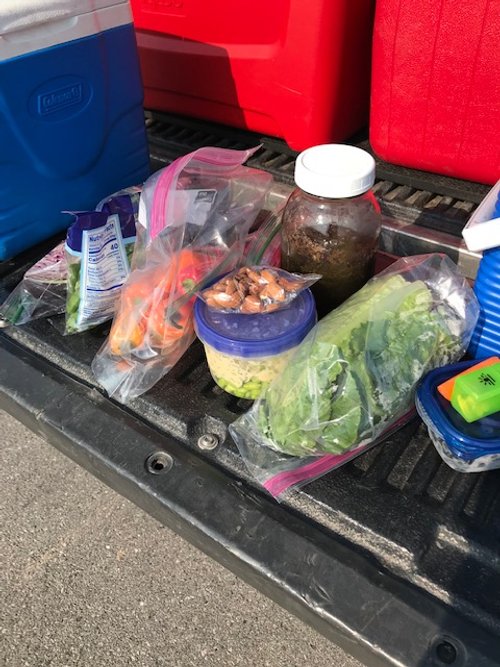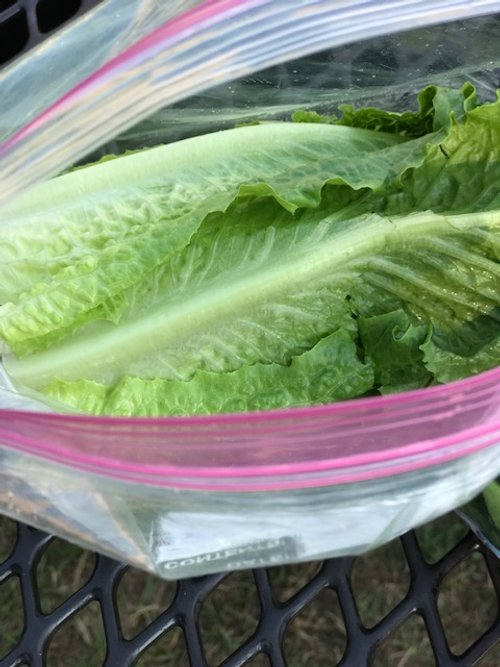Let’s talk about eating out, because that’s the one obstacle many people who’ve committed to the nutritarian eating-style struggle with the most.
The number one tip is to reframe thoughts about eating out.
Truth bomb: traditionally, most restaurants aren’t focused on helping customers get their health back; so, it’s best to stay away from visiting restaurants on a regular basis.
However, there are special occasions to celebrate, or to meet-up with friends, or to just enjoy a quiet evening with someone special. . . and for those times, it’s a lot of fun to eat out.
Although, counting on others to prepare food--while simultaneously expecting salt-free, oil-free, sugar-free whole plant nutrition--is an unrealistic expectation. It’s really not helpful to live in that fantasy world.
In fact, unless you’re at a resort specifically designed to treat medical conditions—or prioritizes eating for optimal nutrition, you’ll usually be greatly disappointed with conventional establishments’ selections. Either you’ll throw in the towel and eat whatever is on the menu; or you’ll feel woefully deprived.
For me, my mindset is: eating out is purely a recreational and social activity. I never expect my nutritional needs to be fully met at restaurants. Ever.
In other words, eating out is in addition to my regular meals—I never expect the food to be my entire meal. (And I keep recreational and social eating to a bare minimum, because too much of it can become damaging to my health.)
For instance, I generally eat very simply. . . and I’m completely satisfied and feel great.
I fill up on large and colorful salads, beans or bean spreads, whole grains, steamed vegetables, nuts and seeds, and a wide variety of fruit.
When I eat out, I may order a platter of steamed vegetables, or a salad without conventional dressings. I view eating out as a bonus “snack” for social and recreational reasons; not the entire meal itself. Therefore, I’m not disappointed or feel deprived, because I’ve already eaten a full meal prior to “eating out.”
I’m a farm kid; born in the 1960s.
By the time I graduated high school, I could count on two hands the number of times I’d eaten out. Back then, it just wasn’t the recreational and social activity it is today. My parents entertained lots of guests around their dining table throughout the years, and my mom packed picnics for road trips and vacations. So, I admit, prepping and packing meals comes natural to me.
But if one is serious about staying out of inflammatory diseases such as diabetes, heart disease, hypertension, aneurysms, strokes—it requires ongoing vigilance in order to prevent them.
The fact is, prepping one’s own food is a chore at times; but not making it a priority, or indulging in laziness, can have profoundly devastating consequences. It’s serious stuff that no one can risk or afford.
(Throughout my parents’ retirement years, they loved to eat at Burger King most evenings of the week. I was with my mom when she suffered a debilitating stroke that totally paralyzed one side of her body—and prevented her ability to speak or swallow. I was with my dad when he woke up after quadruple bypass surgery and communicated by blinking his eyelids. The helplessness was traumatic to witness—I can’t imagine what it would be like to experience it!)
Recently, my husband and I celebrated our wedding anniversary. We ate out for the special occasion, and I ordered a platter of lightly steamed vegetables. I requested no salt or oil; and gratefully, this particular restaurant delivered my request. (Other restaurants haven’t always been so accommodating!) The platter of vegetables was in addition to a prior meal I had eaten at home—not the meal itself.
We also took a road trip to Northern Michigan. I packed two large coolers with: kale smoothies in Ball jars, pre-washed and cut vegetables, leafy greens, fruit, nuts, bean spreads, nut butter, edamame beans, and whole wheat wraps.
We used the tailgate of our truck to prep the meals, and then put them into smaller coolers for each day’s activities. We stopped at beautiful locations to enjoy picnics—and we did eat at restaurants a couple of times, but it was purely for recreation in addition to our meals.
A few years ago, our entire family vacationed in the Big Sur area. We rented an Airbnb with a furnished kitchen and bought food at a local grocery store. We took turns prepping meals—which was a lot of fun. We ate out a couple of times; and thankfully, there were a lot of fresh, high-nutrient choices.
Bottom line, health is our greatest wealth.
It takes vigilant pre-planning and preparation in order to achieve it.
As long as one adopts the mindset that eating out is merely a recreational or social activity in addition to one’s regular meals, it can be done on special occasions without feeling deprived, or interfering with one’s health goals.
I’ll post some pictures below with captions—in case you want some ideas.
Eat for health and live!
“Dear friend, I pray that you may enjoy good health and that all may go well with you, even as your soul is getting along well.” (3 John 1:2)
The view from one of our recent picnics in Northern Michigan.
The view from another one of our picnics in Northern Michigan.
Food on ice prepped at home and stored in large coolers. (We used two large coolers.)
Prepping meals on the tailgate of our truck—to transfer to smaller coolers to carry to the picnic area.
I keep food very simple and basic for picnics.
Leaves of romaine lettuce.
Snap peas
Blueberries
Small peppers
Edamame beans mixed with hummus and almonds—the perfect post-hike recovery food!
Kale and fruit smoothie made at home, frozen, and packed on ice. Another perfect post-hike recovery food!
Hummus and lettuce wrap.
When I visited friends in Alaska, we went on a day hike. They packed protein bars, dried apple rings, tangerines, bananas, and such.
Hummus in small containers for veggies—and high protein bars made from seeds.
And eating outdoors creates an unforgettable atmosphere of unique beauty. . . even if it’s just a local park in the neighborhood where you live.
Emily Boller, artist, mother, and author of Starved to Obesity, lost 100 pounds more than fifteen years ago by eating an abundance of high-nutrient, plant-rich food. Today, she’s certified in whole plant food nutrition from the Nutritarian Education Institute. She’s on a mission to combine practical, no-nonsense and cost-effective tips—with easy to understand science—in order to help anyone escape the addictive grip of the Standard American Diet. And now, she’s on a mission to bring awareness to the suffocating and potentially deadly trap of eating disorders as well.
















